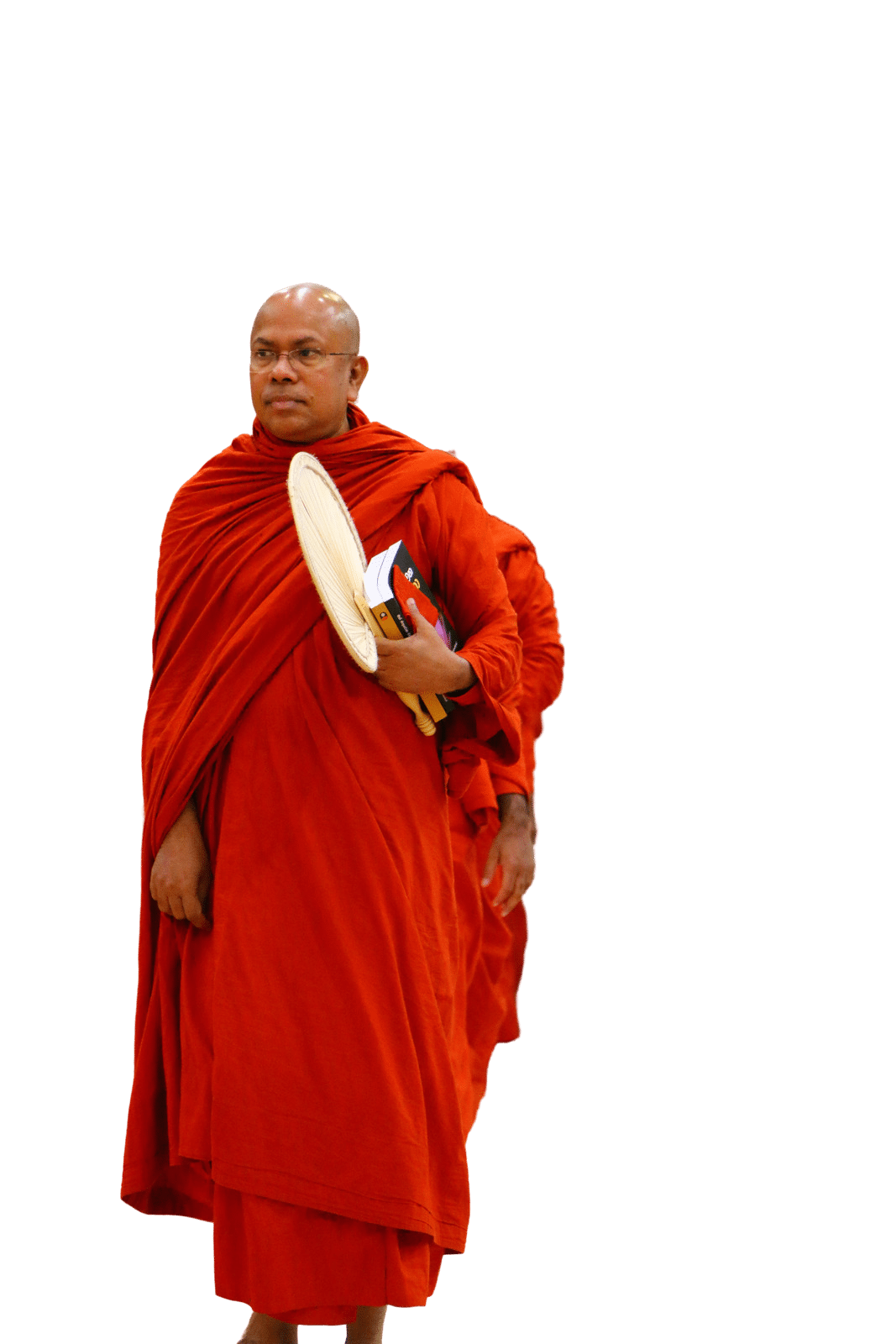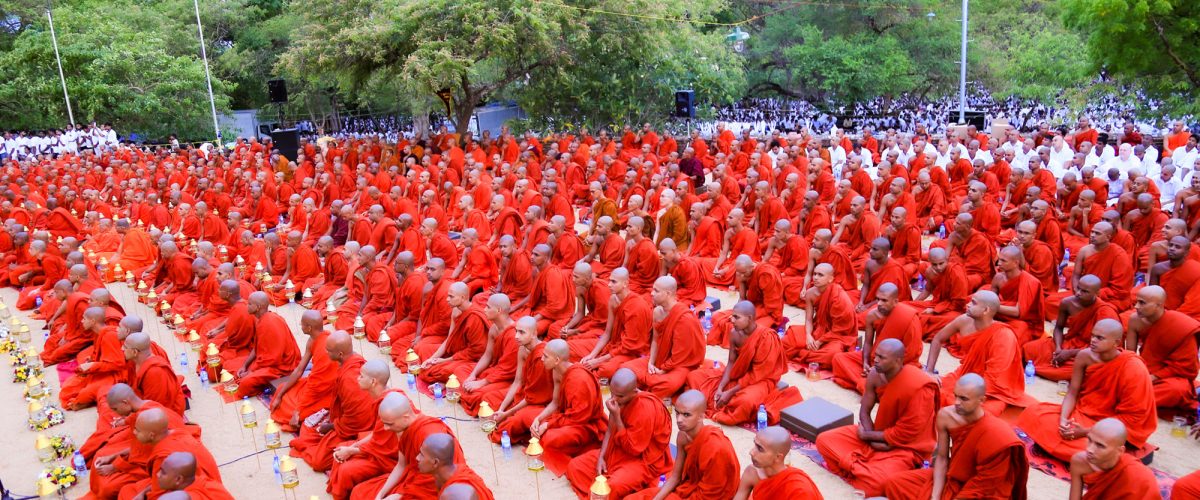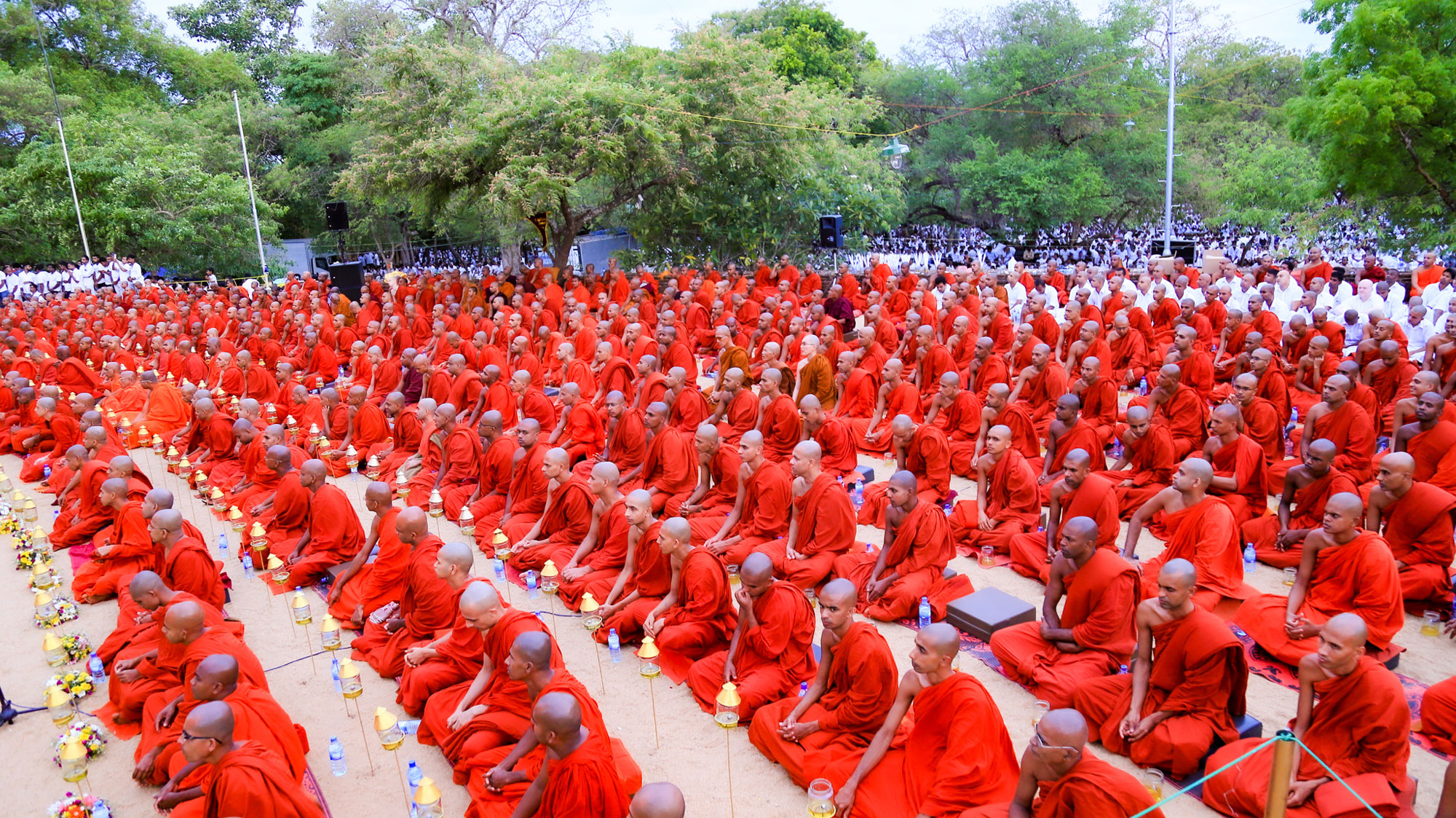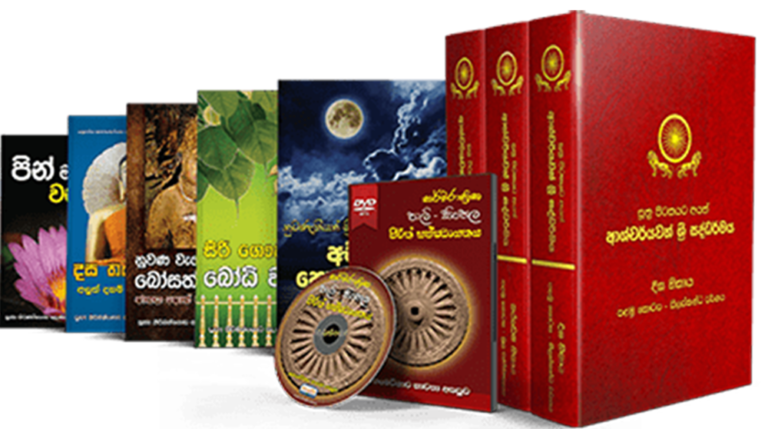
The Great Monastery
The ‘dissemination of the Dhamma’ was started by the founder of the Mahamevnawa Buddhist Monasteries, Ven. Kiribathgoda Gnanananda Thero, with his thirty years of experience as a Buddhist monk, was widespread throughout the country in a very short period of time. As a result of describing the Buddha’s Dhamma in a comprehensible language pattern, devotees of all ages started to join Venerable Thero’s meditation programs. Because of his talent in presenting the meditations in a way so that one’s mind will get easily surrendered, these programs became accommodating for many people who were looking for meditation classes. Activated by His innovative style of presenting the Dhamma to elevate the faith towards the Buddha, humans’ hearts started to open to perceive the taste of the contents in the discourses that have been preached by the Gautama Buddha. Especially, the effort to bring the Tripitaka Dhamma to the devotees in its original form was the distinguishing quality of the Mahamevnawa. Consequently, a collection of young people who listen to the Dhamma and practice meditation was created around the world. More people who are fond of the Dhamma and observing virtue were also formed. Together with these two groups, another group of elderly people was also formed to practice the Dhamma with an aim of realizing the Four Noble Truths revealed to the world by the Supreme Buddha.
Presently, there are more than 800 young disciple Bhikkhus, more than 100 young disciple Bhikkhunis, hundreds of thousands of lay disciples, and more than 50 local and foreign branches of the monastery were created in twelve years of the short time period as a result of this effort.
Distribution of local branches
Mahamevnawa branches in Polgahawela, Matara-Aparekka, Kaduwela, Malhabhe, Kunhdasalaya, Anuradhapuraya, Polonnaruwa, Kurunegala, Banhdarawela, Monharagala, Kataragama, Ibbagamuwa, Madawala Ulpata, Rattota, Siripagama, Eratna, Balangoda, Sooriyavewa, Valhasmulla, Polpitigama, Galnaawa, Aanhamaduwa, Horanha, Potuhara, Seerupita, Hunhumulla, Sadhalankava, Nittabhuwa, Mahawa, Galle, Buttala, Welimada, Bulatsinhala, Kantale, and as well as in Halawata-Koccikade have been established locally.
Mahamevnawa-pawidi_pin_kama (1)While the main branch of the Mahamevnawa is located in Polgahawela, it is beautified by a prodigious temple castle named ‘Sri Sambuddha Rāja Mālhigāva,’ a ‘Siri Gautama Bōdhi Manhdapaya,’ and an aesthetic Stupa named ‘Siri Gautama Damsak Mahā Sēya.’ The Bhikkhu training center of the Mahamevnawa Buddhist Monasteries is based in the Aparekka Mahamevnawa branch.
Other than these branches, the Mahamevnawa Bhikkhuni centers are created in Dabhadeniya, Varakapolha, Mawatagama, Anuradhapuraya, Udupila, and Kadugannawa.
These Mahamevnawa branches that are located around the country bring a great fortune to hundreds of thousands of people. At this point, most of these Mahamevnawa branches have statues of the Buddha, beautiful Stupas, and Bodhi trees.
Dissemination of the Dhamma in Overseas
Also, there are branches of the Mahamevnawa Buddhist Monastery in other countries like the United States of America, England, Canada, Australia, India, Dubai, and Germany. Furthermore, the spreading of the Dhamma is being carried out in many other countries.
The Mahamevnawa Buddhist Monasteries participated in the preaching ceremony of the Tripitaka carried out in the sacred premises of Buddhagaya of India in the years 2006, 2007, and 2008 by presenting Sri Lanka.
Centers for weekly meditation programs are also created for the lay disciples to practice the Dhamma by residing in the premises. Weekly meditation centers in Tabhakanda and Bhavana Kanda are dedicated to male disciples while Mutugala Anagarika Monastery is for female disciples.

Disciplined Bhikkhu disciples ordained under Ven. Kiribathgoda Gnanananda Thero also perform meditation programs in the Mahamevnawa Meditation Centers around the country. More Dhamma programs are conducted in many temples around the country too. A large number of devotees gather in these Dhamma programs each time to listen to the exalted Dhamma bearing the Four Noble Truths. There are times when Ven. Kiribathgoda Gnanananda Thero conducts the Dhamma program more than 15,000 people would participate.
Great worshiping ceremonies
More than one hundred thousand people partook in the Wesak-Seela-Bhavana program organized in the premises of the Stupa Swarnhamali about seven years ago. Afterwards, a rapid increase in the number of disciples was seen within the next couple of years. Devotee disciples as many as 1.1 million gathered in the premises of the Stupa Swarnhamali in Anuradhapura throughout the night to join the “Extraordinary Swarnhamali Stupa Worshiping” and the Dhamma sermon ceremony conducted by Ven. Kiribathgoda Gnanananda Thero in 2008. It was in fact the largest crowd ever gathered continuously in a worshiping ceremony in the recent history of Sri Lanka.
Also, hundreds of thousands of people participated in the Stupa Sōmawati worshiping ceremony (“Budhuras Vihidena Sōmawati Mahā Stupa Vandana”) conducted by Ven. Kiribathgoda Gnanananda Thero in year 2010.



Dhamma publications
Ven. Kiribathgoda Gnanananda Thero has written many books composed of the noble discourses of the Supreme Buddha using a comprehensible style in the Sinhala language, and about 90 books have been published up to now. Thero also translated the sacred text of Pali Sutta Pitaka into the Sinhala language. Eleven of these Tripitaka books are published to this point.
The series of books named ‘Amā dam rasa vaahena vistarārtha Dhamma padaya’ written by the venerable Thero using the Atthakatā for the fascinating ‘Dhamma Padaya’ preached by the Most Excellent One is like an enticing divine medicine for devotees of all ages.
Hundreds of audio cassettes and CDs of the venerable Thero’s Dhamma sermons quench the thirst of the devotees like a fabulous rain. The ‘Mahāmēgha’ Dhamma newspaper is another service presented by the Mahamevnawa aiming to take the message of Dhamma into the hearts of the people in the community. A website and a live webcast are also in operation to propagate the Dhamma internationally.